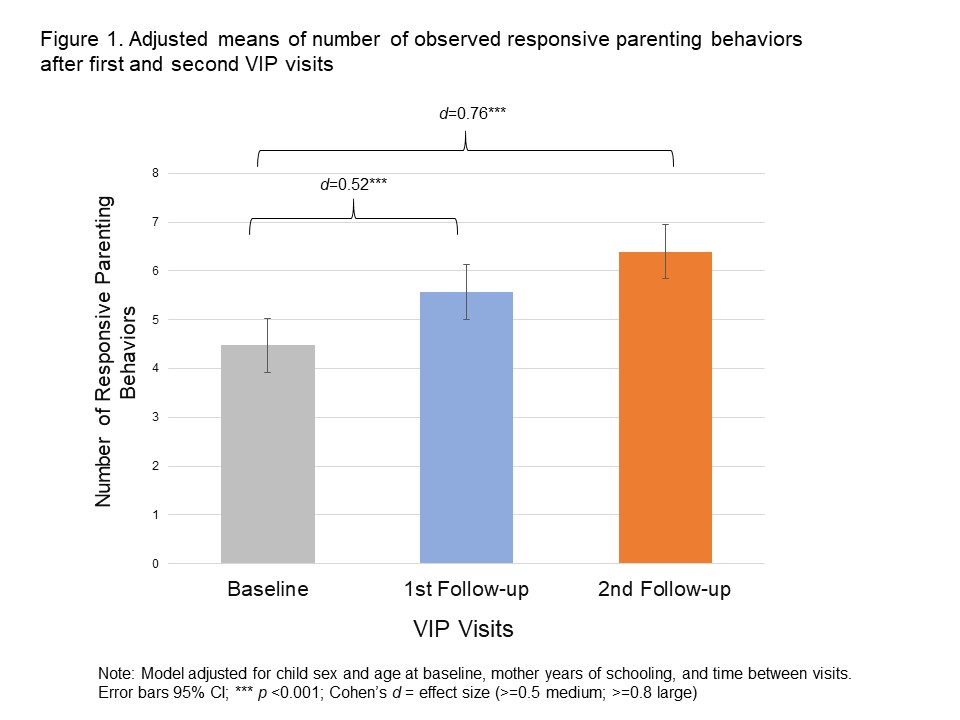General Pediatrics
Session: General Pediatrics 4
368 - Supporting responsive parenting in real-world implementation: Minimal effective dose of the Video Interaction Project
Saturday, May 4, 2024
3:30 PM - 6:00 PM ET
Poster Number: 368
Publication Number: 368.1215
Publication Number: 368.1215
- ER
Erin Roby, PhD (she/her/hers)
Assistant Professor
NYU Grossman School of Medicine
Hawthorne, New Jersey, United States
Presenting Author(s)
Background: Considerable evidence has demonstrated the importance of Early Relational Health (ERH; positive parenting, relationship quality) for promoting optimal child development and buffering the negative consequences of poverty on children’s outcomes across a range of domains that are important for school readiness. Pediatric primary care is a promising platform for promoting ERH due to its capacity to reduce barriers in achieving universal reach (high utilization), alignment with well-child visits (convenience, accessibility), and low cost (use of existing infrastructure). The Video Interaction Project (VIP) is a healthcare-based intervention that provides real-time video-feedback of parent-child play and reading interactions to families with children aged 0 to 36 months. Evidence from randomized controlled trials demonstrates improved ERH, including responsive parenting, after three to five VIP visits. However, there is interest in understanding how many sessions are needed to make an impact. Currently, the minimal effective dose of VIP in real-world implementations is unknown.
Objective: To determine the minimal effective dose of VIP for changing responsive parenting behaviors in the context of a real-world implementation.
Design/Methods: We performed a longitudinal prospective study of 183 dyads at a public hospital pediatric clinic. Responsive parenting behaviors were assessed with an observational checklist utilized as part of standard VIP practice at baseline and two follow-up VIP visits.
Results: Multilevel models adjusted for baseline sociodemographics (child's sex and age, and maternal education) and time between visits showed that responsive parenting behaviors during parent-child reading and play significantly increased after a single VIP visit (Cohen’s d=0.52, p< 0.05) with additional impact following completion of a second visit (cumulative for 2 visits: d=0.76, p< 0.05) (see Figure 1).
Conclusion(s): This is the first study examining the minimal effective dose of the Video Interaction Project (VIP). A single VIP visit was associated with increased responsive parenting behaviors, with additional benefits seen following a second visit. These findings support offering VIP widely, regardless of capacity to ensure attendance at multiple visits. Results also have important implications for implementation and scalability of pediatric-based preventive programs that support ERH through activities such as reading and play.

